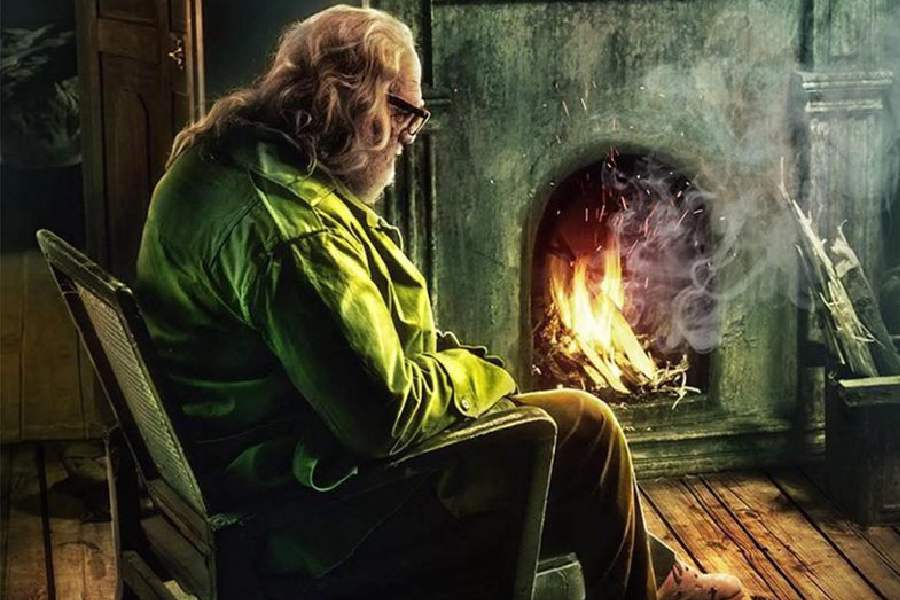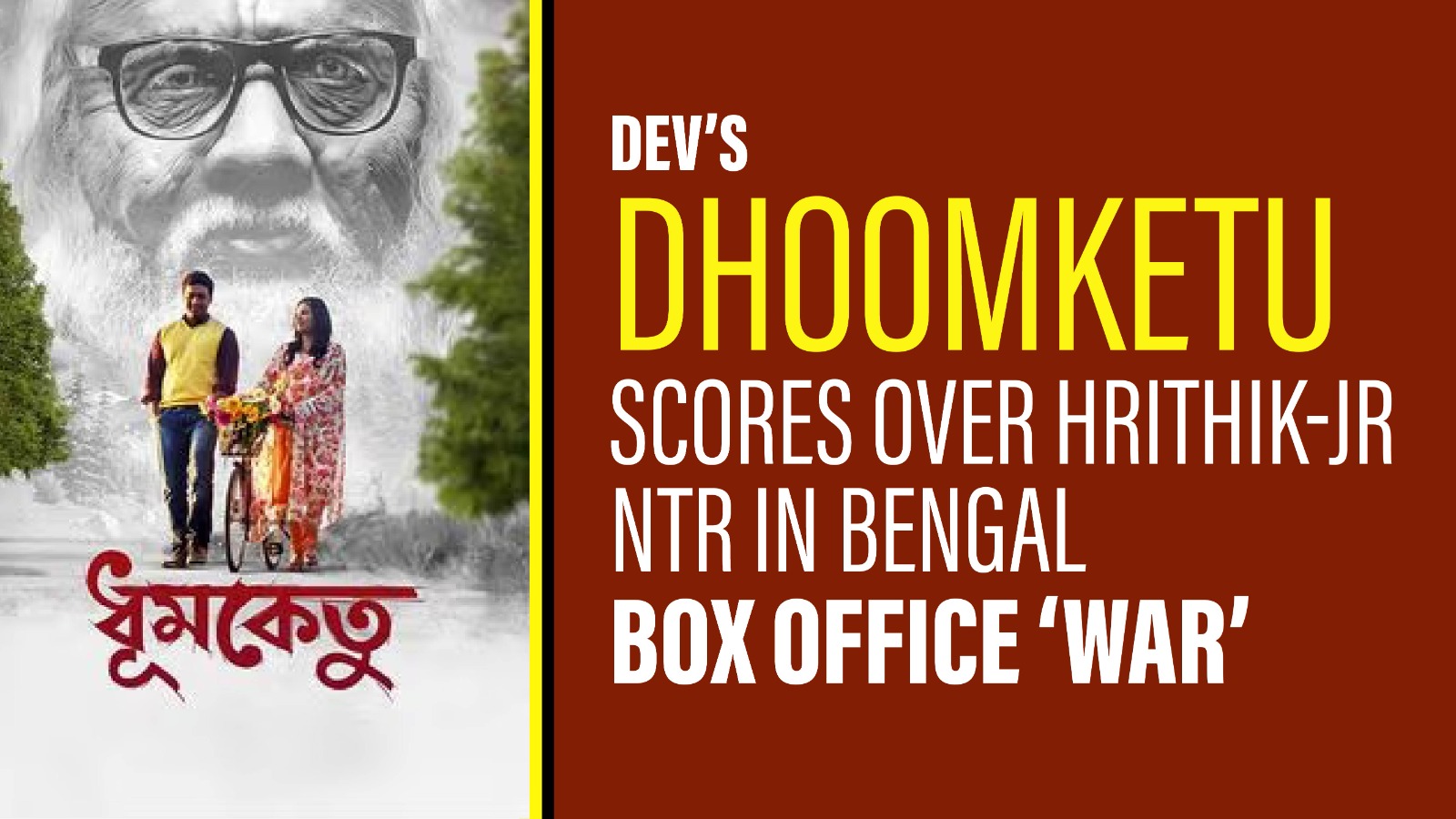What’s happening in Bengal right now isn’t just a box office surprise. It’s a massive, high-end shift for the industry altogether. Feels like a homecoming.
Dev’s Dhumketu, a film rooted in nostalgia and mass appeal, has sparked a reaction few expected. With nearly 18,000 advance tickets already sold, it has overtaken War 2 in Bengal—a film backed by the might of Hrithik Roshan, Jr NTR, and the Yash Raj Films empire. This isn’t just numbers. It’s a clear sign of where the emotional pulse of the audience lies. Also to witness Dev and Subhashree reunite together after so many years, is just upholding the very catch of it.

The buzz is real. Single-screen theatres across Kolkata are seeing queues again. Prachi, Jayanti, Binodini—all reporting fast-filling shows. Even the national bigwigs took note. In an unusual move, YRF allowed screen-sharing with Dhumketu in the region, acknowledging the pull of a film that was never expected to compete at this scale.
While War 2 has drawn over 1.1 million expressions of interest on BookMyShow across India, Dhumketu has quietly clocked over 52,000. On paper, that may seem like a modest number. But zoom in on Bengal, and the picture changes entirely. Here, Dhumketu is ahead in advance bookings, beating out the big-budget spectacle where it matters most—on home turf. It’s a reminder that scale doesn’t always equal identical affinity, and that sometimes, a film rooted in local lingo and belief can pull ahead of a nationwide release simply because it speaks directly to its audience.
And then we get our hands on the news that truly changed the entire narrative.
On Wednesday, the West Bengal government announced a primary directive: every cinema hall, on every screen, must run a Bengali film during prime time, every day of the year. From 3 PM to 9 PM, 365 days. No exceptions. That’s not a nudge. That’s policy saying, “We back our stories.”
This is a turning point.
Bengali cinema has often lived in the gloom of other industries, fighting for space, attention, and fair play. But right now, with Dhumketu ushering a grassroots surge and government support latching onto systemic change, it feels distinct. It feels like the start of something lasting.
This isn’t just a triumphant film opening. It’s a gesture that Bengali cinema is ready to own the spotlight again. Not once in a while. But every single day.

